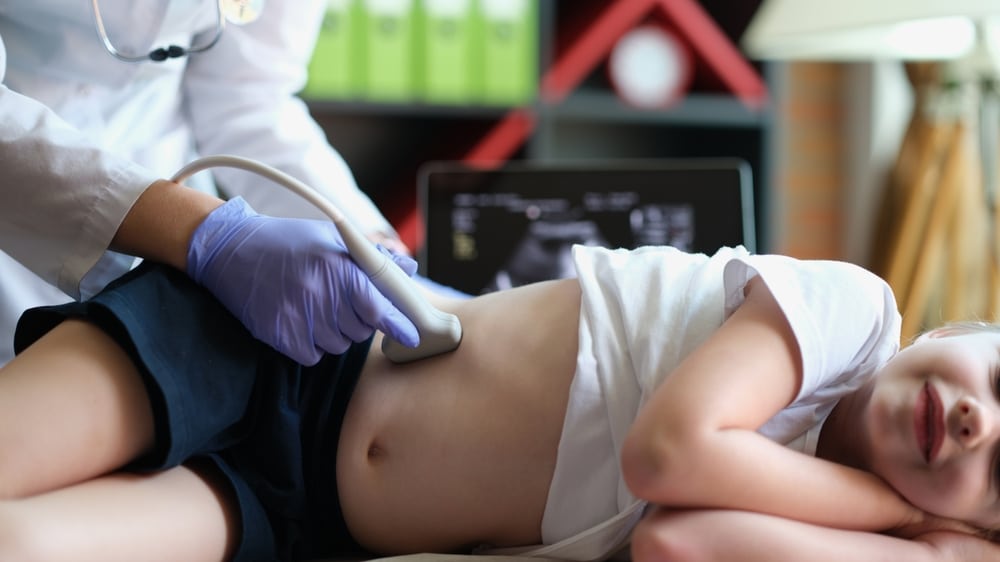When we think about acute kidney injury (AKI) and multi-organ failure, we don’t often think about children.
But approximately 4,000 pediatric patients in the U.S. each year have AKI requiring continual kidney replacement therapy (CKRT). These patient profiles are associated with long hospital stays, high morbidity and mortality (50%), and children who survive an AKI episode are at risk of long-term conditions, including chronic kidney disease (CKD).
A new therapy that fights hyperinflammation that is under review by the U.S. Food and Drug Administration (FDA) could bring a needed solution to these children. The Selective Cytopheretic Device (SCD), created by U.S.-based SeaStar Medical, is an innovative therapy that may be approved for children before it is approved for adults.
Eric Schlorff, CEO of SeaStar Medical (NASDAQ: ICU), spoke with us about the promise of cell-directed extracorporeal therapy for children.
What is cell-directed extracorporeal therapy (CDET)?
Cell-directed extracorporeal therapy is a type of extracorporeal modality (outside the body) which targets the effector cells that cause hyperinflammation. Most extracorporeal approaches used today are only available to adults and focus on removing cytokines once hyperinflammation has begun.
Think of it this way. Imagine a cytokine storm as a rainstorm. Many of the treatments we use today seek to mop up the rain once it has fallen and caused a flood. Cell-directed extracorporeal therapy works at the cellular level to manage the clouds and stop the storm at its source so that it doesn’t cause a flood but allows the rain to provide the appropriate level of water to allow growth.
What is SeaStar Medical’s lead product and what does it do?
Every day, critical care clinicians face an uphill battle to save patients from the potentially deadly effects of hyperinflammation, or the cytokine storm. Cytokines are small signaling molecules produced by immune cells that act like a beacon for the immune system, directing them where to go. Simply put, they help the body fight off and kill infections.
But sometimes, cytokines go into overproduction and overwhelm the body, creating the cytokine storm. As an example, when too many pathogens enter the body at once, the body reacts with cytokines that in turn attack the body with toxic and potentially fatal effects. These phenomena can also occur in patients with trauma, surgery as well as many other injuries to the organ.
The Selective Cytopheretic Device (SCD) is a cell-directed extracorporeal therapy that works to transform key immune system messengers from a damaging pro-inflammatory state to their original healing state by targeting and neutralizing the most activated proinflammatory neutrophils and monocytes to allow the body to return to healing. It works with continuous kidney replacement therapy (CKRT).
Why is this significant?
A cytokine storm is the byproduct of a dysregulated immune system, so it is caused by an underlying insult or condition, like bacteria, a virus, trauma or even surgery. When the body goes into hyperinflammation, it is no longer able to fight the underlying condition. By bring the body back to homeostasis, the body can focus on healing, and it can become strong enough to undergo treatment for the underlying condition.
For example, we are aware of a case where a 22-month child with hemophagocytic lymph histiocytosis (HLH), a dysregulated immune disorder in children associated with Epstein Barr virus, developed hyperinflammation and multi-organ failure. The child underwent four days of SCD therapy, resulting in normalization of sepsis and inflammation markers. More importantly, once stabilized, the child was able to undergo a bone marrow stem cell transplant for HLH and reported normal kidney function eight months later.
This is significant not only because the child not die from the multiorgan failure, but the child was able to recover and have the surgery needed to address the underlying HLH.
Is hyperinflammation an issue in children? Why is this a significant innovation for children?
It is an issue for all ages. Cytokine storms can happen in children, and there are few, if any, approved therapeutic options for children who experience, so there is a true unmet clinical need. Because of grant support from the FDA’s Orphan Products Division, the SCD will be introduced to pediatrics before adults.
I understand the SCD may be available to pediatric patients before adults. Why is that?
We have been studying the SCD in children for some time, and the FDA saw the potential impact it could have on this population in need of treatment options. The FDA Orphan Products Division provided us a grant to help fund the clinical study which we completed last year.
We have now filed for humanitarian device exemption (HDE) with the FDA for use of the SCD in children over 20 kg with acute kidney injury (AKI). We anticipate a decision in the first quarter of 2023. If approved, it will be the first cell-directed extracorporeal therapy on the market, and it will be available to children in the U.S.
What is next for SeaStar Medical and the SCD?
If approved, we will begin to work with the institutional review boards of major children’s hospitals in the U.S. to make the product available. We will also be initiating our pivotal study of the SCD in adults with AKI in 2023 and expect to have final data to support a pre-market application (PMA) to the FDA in 2024.
From there, we will also continue to explore other indications for use of the SCD, such as acute respiratory distress syndrome, cardio renal syndrome and hepato-renal syndrome. We see many opportunities for the SCD in the future. But our first priority is getting this potentially life-saving therapy to children in need once it is approved.





